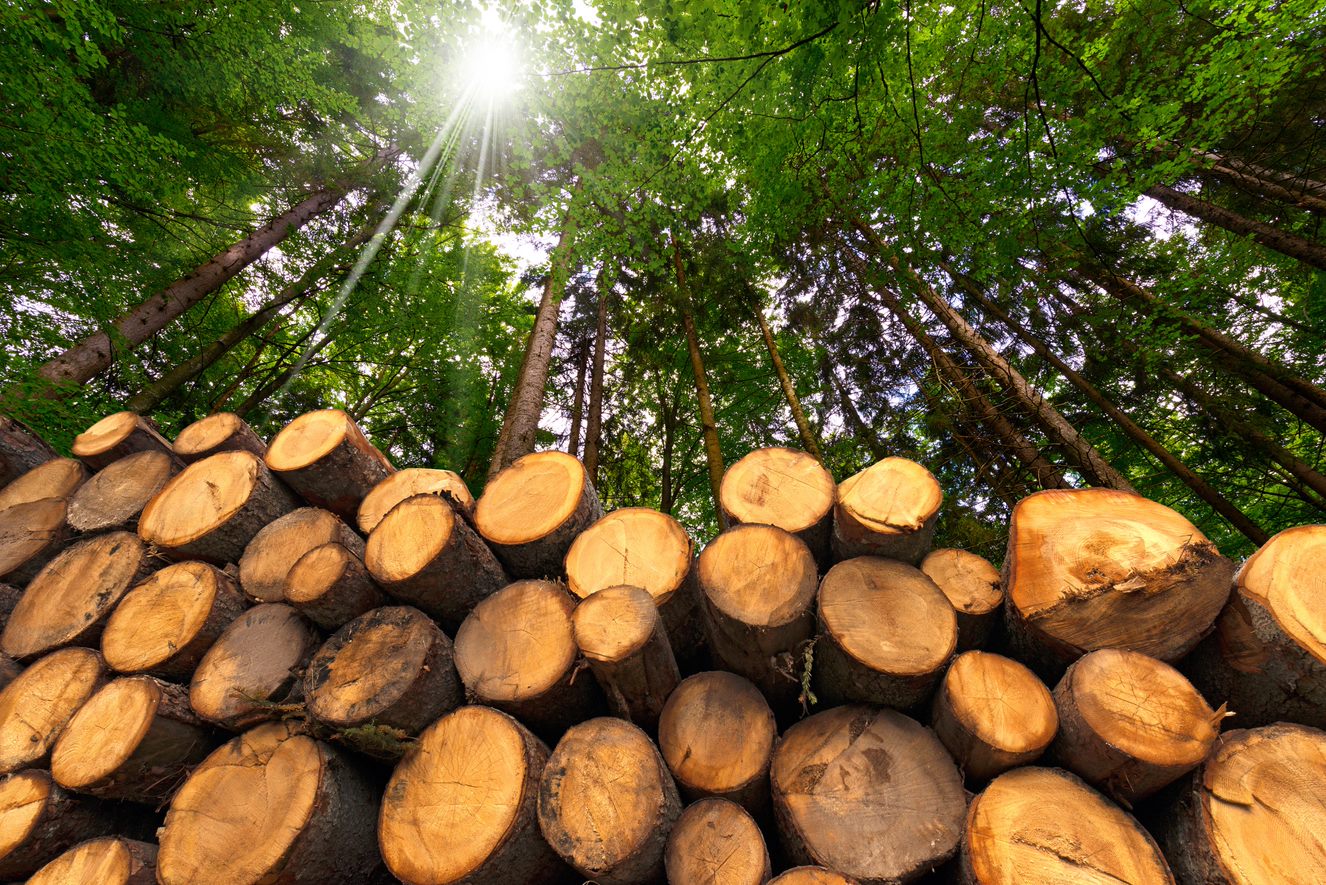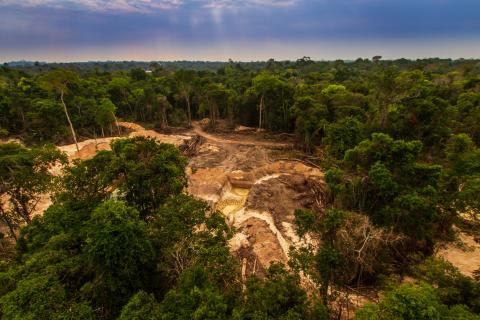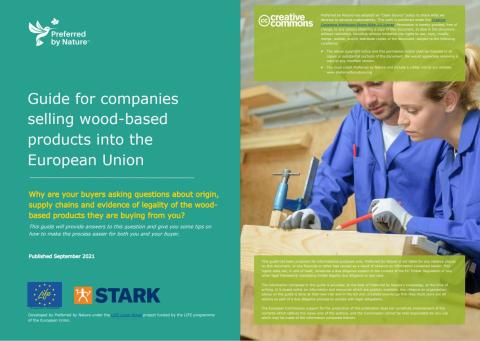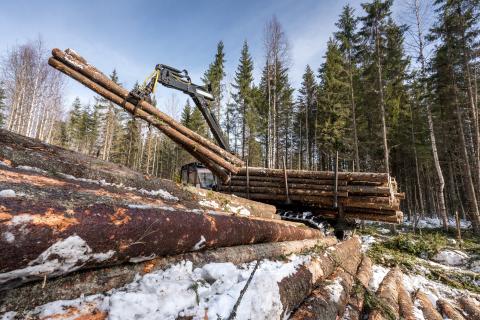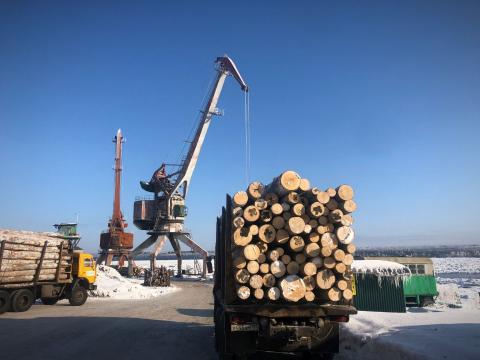Australia passes Illegal Logging Prohibition Bill
On 19 November 2012, the Australian Senate voted in favour of the Australian Illegal Prohibition Bill, which prohibits the importing of illegally logged timber and timber products as well as processing domestically grown raw logs that have been illegally logged.
Pending Royal Assent, the Bill will become a law, coming into force the following day. Two years after the enactment, regulations specifying due diligence requirements will also come into effect.
Once the Bill has become law, the following actions will be criminal offences in Australia: firstly, the import of illegally logged timber and timber products into Australia; and secondly, the processing of Australian raw logs that have been harvested illegally. The Bill establishes penalties of up to five years’ imprisonment or fines of up to 55,000 USD for an individual, and 275, 000 USD for a corporation.
“This is another victory in the global effort to combat illegal logging by closing lucrative markets for forest criminals”, says Christian Sloth, Forest Legality Programme Manager at NEPCon.
Australia imports significant volumes of timber from overseas. According to a report published by the Australian government in November 2012, Australia imported timber and paper products worth almost 5 billion USD from 120 countries in 2010.
Broad stakeholder support
The Bill has been thoroughly consulted and revised several times, accommodating stakeholders’ comments. During this process, it has garnered widespread support amongst Australian stakeholder groups.
The Bill has not been without opponents. Earlier this year, the Australian coalition of liberal parties successfully lobbied to delay the passing of the law, allegedly due to concerns over a potential trade dispute with Indonesia. After a six-month delay, it was finally pushed through by a diverse group of stakeholders. In an unusual alliance, timber merchants and retailers including IKEA, Bunnings, Simmonds Lumber and Kimberly Clark joined environmental and social justice groups such as Uniting Church, World Vision, WWF, Oxfam, and the Wilderness Society in a united call to pass the Bill.
Alignment with EU and US
Aside from the obvious intention of excluding illegal timber from the market of its jurisdiction, the Australian Bill shares several similarities with the EU Timber Regulation and the US Lacey Act, including the prohibition on importing products containing illegally harvested timber.
“With legislation in place in three of the world’s largest timber markets, the rules of the game have changed significantly on a global scale”, says Mr Sloth.
“The essence of the ban on importing and trading illegal forest products, the definitions of legality and the requirements to exercise due diligence – or due care in the case of the Lacey Act – are relatively similar", he adds.
"There are some differences in the way that these requirements are formulated, and once the regulations of the Australian Bill have been developed it will be clearer where differences and similarities of detail lie; but in general, the impression is that the requirements, in practice, are fundamentally similar”, concludes Mr Sloth.
View the Bill and explanatory memorandum
Comparison of key aspects
In the table below, key aspects of the three legislations are compared. Bold text indicates similarities between the Australian Bill and the two other legal frameworks. Please note that the table represents NEPCon’s interpretation of the legislations.
| EU Timber Regulation | US Lacey Act | Australian Logging Bill |
| Prohibits placing illegal timber on the market. The prohibition applies to importers and forest operations located within EU. | Prohibits placing illegal timber on the market. The prohibition applies to all entities in the entire supply chain. | Prohibits placing illegal timber on the market. The prohibition applies to importers as well as processors of domestically produced raw logs. |
| Includes due diligence obligations. Obliges “operators” (“first placers”) to establish and follow a Due Diligence System. Traders (who are not first placers) are required only to record from whom they buy products included in the scope and to whom they re-sell products. | No obligation for a due diligence system, but it is expected that organisations exercise due care in efforts to reduce the risk of legal violations. The level of due care exercised will affect sanctions in case of legal action. | Includes due diligence obligations. The Bill requires both importers of regulated products as well as processors of domestically produced raw logs to exercise due diligence, however it is not clear whether a due diligence system will be required. The due diligence obligations will only come into effect two years after the passing of the law. |
| No timber verification schemes are accepted as proof of legality, but may be an important aspect of due diligence. | No timber verification schemes are accepted as proof of legality, but may be an important aspect of due care | No timber verification schemes are accepted as proof of legality, but may be an important aspect of due diligence. |
| FLEGT and CITES licensed timber accepted as proof of legality. | FLEGT and CITES not accepted as proof of legality, but may be used as part of due care. | FLEGT and CITES not accepted as proof of legality, but may be used as part of due diligence. |
| Covers numerous timber products but exempts many others. The Regulation’s annex includes products that are covered, identified by their CN (EU customs tariff) codes. | Covers all timber products except living plants and plant genetic material used for research. | Until the regulations come into effect, all timber products are covered by the prohibition on importing illegal timber products. |
| Does not require special customs declaration. | Requires special customs declaration. | Requires special customs declaration |
Sources: Government of Australia, press release from Greenpeace
